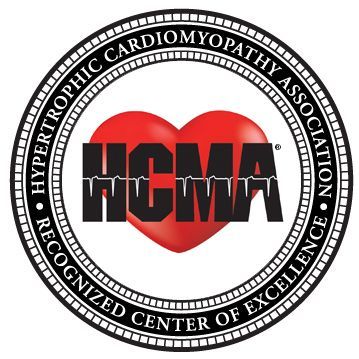What is a Center of Excellence (COE)?
A Center of Excellence is a team of specialists who provide high-quality care to patients with a specific disease. They use accepted best practices in their specialty. Medical facilities often seek COE status if they have a team working on a disease. These diseases include Cancer, Diabetes, Alzheimer's, or, of course, HCM.
The HCMA created the "HCMA Recognized Centers of Excellence" program in 2004. This program ensures that the services and procedures offered at COEs align with current best practices for managing patients with HCM. Centers must use a team approach to care, including HCM specialist cardiologists, genetic counselors, imaging specialists, and more. In addition, a COE has up-to-date equipment and scanning protocols. Their technicians are trained to get the right angles during your testing.
Our hard work has paid off! The American Heart Association and the American College of Cardiologists have embraced the HCMA's COE model in their best practice guidelines for HCM, 2020/2024.
For a list of centers, please visit our website at https://4hcm.org/center-of-excellence/. You can also see the criteria used in reviewing these programs. We currently recognize COEs in the United States, but we can often recommend somewhere for you in another country. Please contact us for more information.
The HCMA continues to grow new programs and evaluate them for COE status. We want you to have COE care near your home. We offer need-based travel grants to help people get the best care for HCM in the US. Call us at +1 973-983-7429 and ask about the Lori Fund, or apply on our website. The Lori Fund can reimburse you for gas, airfare, hotel, and food up to $600 annually to help you get to a Center of Excellence.
We have partnered with Angel Flight East to help patients travel to a COE for care. If you aren't in the Eastern US, they can help connect you to another regional Angel Flight partner. You can read more at https://angelflighteast.org/ or ask us to connect you with a flight.
Why should I go to a COE?
Most community cardiologists in the USA see about 5-10 cases of HCM in their practice. HCM is a highly variable disease. These cardiologists may not be familiar with the complex variations of HCM anatomy. For example, the amount and location of thickening in the heart can look very different in different patients. This can affect the way the heart works. A COE program may see hundreds of HCM patients. A high-volume COE may see thousands of cases. They see people just like you, and as a result, COEs are more likely to understand your presentation of HCM.
It is especially important to be seen by a high-volume center if you need invasive treatment for obstruction (myectomy surgery or alcohol septal ablation). Even at a COE, you must ask how many of these procedures your potential surgeon does yearly. The statistics for myectomy show that the chances of complications are much lower with a surgeon who does many of these specialized procedures. To ensure the best outcomes from surgery, we strongly recommend a consultation with a high-volume COE before you consent to a procedure. This may be done through telemedicine in some cases.
For more information about the difference between myectomy in a high-volume center and lower-volume hospitals, please see Septal Reduction Therapy for Obstructive Hypertrophic Cardiomyopathy: Volume Still Matters for Septal Myectomy. Journal of the American Heart Association Volume 12, Number 10, 15 May 2023.


 Translate
Translate


